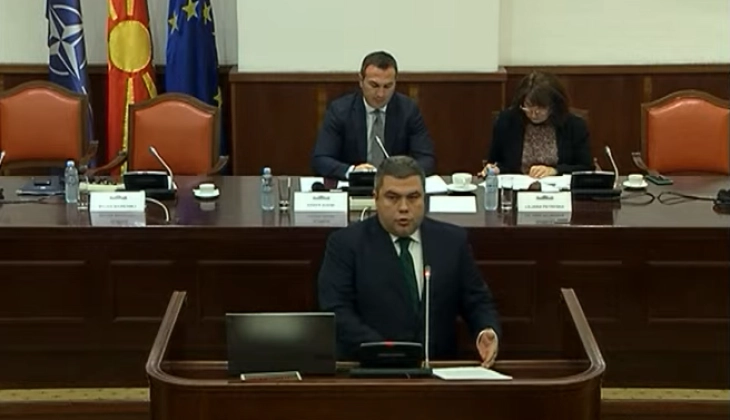Marichikj: EU membership through joint efforts by 2030, national development goals implemented as well
- Based on the screening report on Cluster 1: Fundamentals, institutions should work on creating roadmaps for the rule of law, public administration reforms and the functioning of democratic institutions, with the first two being a formal prerequisite for opening the cluster.

Skopje, 9 October 2023 (MIA) - Based on the screening report on Cluster 1: Fundamentals, institutions should work on creating roadmaps for the rule of law, public administration reforms and the functioning of democratic institutions, with the first two being a formal prerequisite for opening the cluster. Working groups have been created on an institutional level, they have the first drafts and are in intense discussions with Brussels. They will also include recommendations and instructions that will come with the peer review mission of the Judicial Council, and finally all this will have to find a place into the new National Development Strategy, Deputy PM for European Affairs Bojan Marichikj told a public debate on governance in the function of citizens within the framework of the Committee on European Affairs on Monday.
"The rule of law is a key assumption for the development and functioning of the economy, therefore we are obliged to pay more attention, take serious precautions, so that in the medium and long term we can establish a system according to these guidelines, where we will not need additional mechanisms for observation of our judiciary system, elections and dismissal of judges, the quality of justice and verdicts, and efficiency in proceedings, which are part of EU's observations," Marichikj said.
It is important, he added, that this process remains open for everyone and they all take active participation, such as MPs from all political parties, prosecutors, judges and everyone else at the higher level, as well as academics and CSOs.
"This task is for everyone, that is why it is called the National Development Strategy. The Government encourages discussions to be more open and inclusive, and all these strategic measures will make sense if we focus on key issues and be implemented into practice," noted Marichikj, adding that we do not need a document that is just a list of wishes too difficult to implement.
The roadmap is being determined now and it covers topics from Chapter 23-24, that will remain open until the end of the negotiations, and whatever obligations are implemented will be long-term.
"The roadmaps plan will last until 2030, seven years, by which time we want negotiations to be concluded, and so far we have a positive response from the European Commission, and therefore it is important how we shape it," the Deputy PM said.
During this process, he stressed that they asked the Netherlands to send their own expert to participate in the working group that is drafting the rule of law roadmap, and that they also have a peer review mission for the work of the Judicial Council.
"We expect to receive a report of their work by the end of these two processes. We plan to incorporate everything they recommend and instruct into the roadmap to ensure the rule of law, which is a type of strategic document for the next seven years," Marichich emphasized.
According to him, "we should not run from our problems, but together to overcome them."
"Regarding the implementation, we need everyone's participation. You have a partner in the Government, and it will remain so. I am sure that though joint effort we can reach our goal and EU membership by 2030, and also implement national development goals, which will be incorporated into the National Development Strategy," Marichikj explained.
Today's Committee on European Affairs session is within the framework of the National Development Strategy and aims to include the political parties in the process of creating a strategy and open a discussion with academics, CSOs, business sector and experts, to include different points of view in the final document, but also ensure continuity in the implementation of the strategy.
Photo: Parliament/Screenshot







